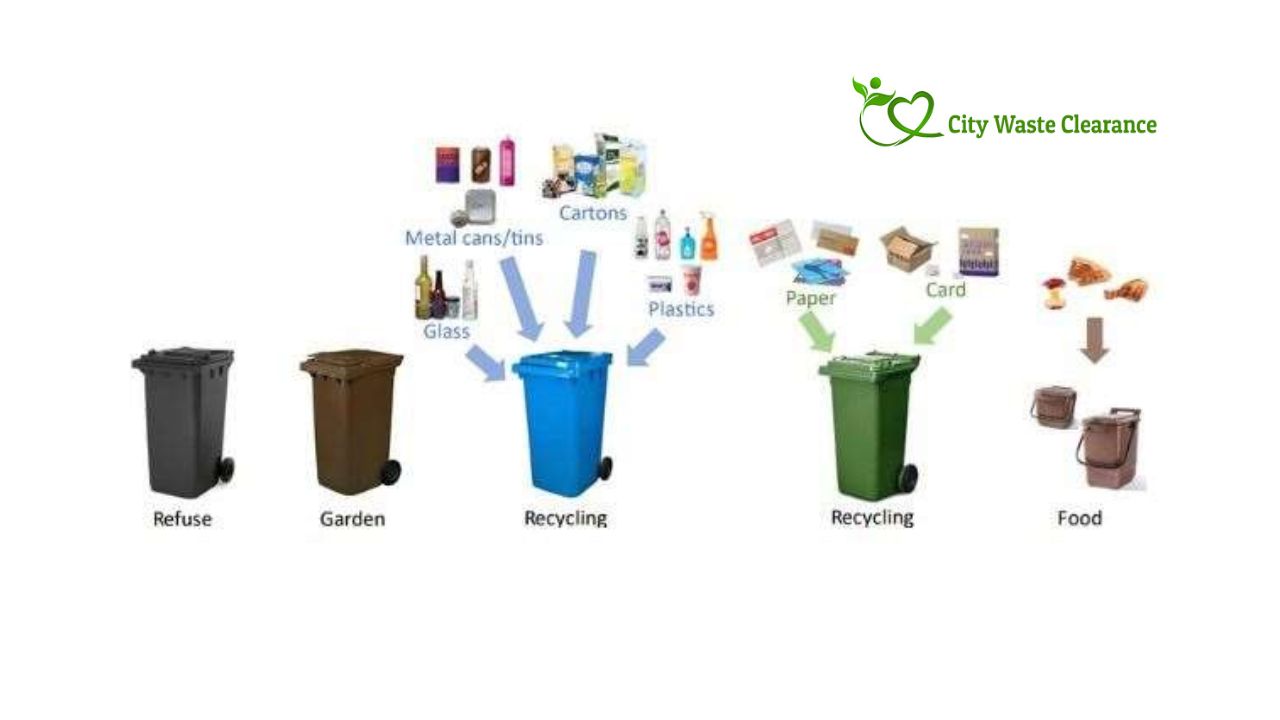How do bins work in the UK? Bins in the UK are used for waste segregation and recycling. Different bins are designated for various types of waste.
In the UK, waste management is crucial for environmental sustainability. Households use different colored bins to separate waste. Typically, there is a bin for general waste, another for recyclables, and sometimes a third for organic waste. Each local council may have its specific guidelines and collection schedules.
Proper segregation helps in efficient recycling and reduces landfill use. Understanding the bin system ensures that waste is disposed of correctly. This contributes to a cleaner, greener environment. Local councils often provide information on what can and cannot go into each bin. Residents should stay informed to comply with these regulations.
How do bins work in the UK? Types Of Bins?
In the UK, bins are categorized for efficient waste management. Households use separate bins for recycling, general waste, and organic waste. Each bin type ensures proper disposal and environmental care.
General Waste Bins
General waste bins are for items that cannot be recycled. These bins usually have a black or grey lid. They are collected regularly by local councils. Items like plastic wrappers, broken toys, and dirty food containers go here.
Recycling Bins
Recycling bins are for items that can be reused. These bins often have a blue or green lid. Councils collect them to help the environment. Items like paper, cardboard, plastic bottles, and cans belong in these bins. Make sure items are clean before putting them in.
Organic Waste Bins
Organic waste bins are for food scraps and garden waste. These bins usually have a brown lid. They help turn waste into compost. Items like vegetable peels, fruit scraps, and grass clippings go in here. They are also collected by local councils.
Bin Collection Schedule
Bins are collected once a week. Each household has a specific collection day. It is important to put your bin out the night before. Make sure bins are not overflowing. The council provides a recycling bin and a waste bin. Follow the rules for each type of waste.
Bin collections change during holidays. Check the council’s website for updates. Collections might be earlier or later than usual. Public holidays like Christmas and Easter often affect the schedule. Plan ahead to avoid any inconvenience.
Sometimes bins are missed. Report a missed bin to your local council. Reports can be made online or by phone. Make sure your bin was out on time. Ensure it was not blocked by cars or other objects. The council usually resolves missed collections quickly.
Recycling Guidelines
Most plastics, paper, and glass are recyclable. Check with your local council for a full list. It’s important to know what goes in which bin.
Clean all items before recycling. Remove any food waste. Flatten cardboard boxes to save space. This makes the recycling process easier.
Do not put plastic bags in the recycling bin. Avoid placing food waste in recycling bins. . Electronics need special disposal methods. Always check the guidelines to avoid mistakes.
Organic Waste Management
Compost bins can take food scraps. You can add fruit peels, vegetable skins, and eggshells. Tea bags and coffee grounds are also good. Make sure to remove any plastic or metal parts. Avoid putting meat, dairy, or oily foods in the compost bin.
Place your compost bin in a sunny spot. Add a mix of green and brown materials. Green items include grass clippings and kitchen scraps. Brown items are leaves, paper, and cardboard. Turn the compost regularly to speed up the process. Keep the compost moist but not too wet.
Composting reduces waste in landfills. It also creates nutrient-rich soil. This helps plants grow better. Composting cuts down on greenhouse gases. It is good for the environment and your garden.
Waste Reduction Tips
Single-use plastics are harmful to the environment. Carry reusable bags when you go shopping. Avoid plastic straws and use metal or paper ones. Choose glass containers instead of plastic ones. Say no to plastic cutlery and use your own.
Items can have many lives if reused. Old jars can store food or small items. Use old clothes as cleaning rags. Repurpose cardboard boxes for storage. Donate items you no longer need.
Smart shopping helps reduce waste. Buy in bulk to reduce packaging. Choose products with less packaging. Support brands that use eco-friendly materials. Plan meals to avoid food waste.
Community Initiatives
Many towns have local recycling programs. These programs help people sort their waste. They also provide different bins for different materials. This makes recycling easy for everyone.
People can volunteer to help with waste management. Volunteers often pick up litter in parks. They also educate others about proper waste disposal. Volunteering helps keep communities clean.
Educational campaigns teach people about recycling. These campaigns use posters, flyers, and school programs. They explain why recycling is important. They also show how to use the bins correctly.
Frequently Asked Questions
What Can Go In The Recycling Bin?
You can put paper, cardboard, glass, metal cans, and certain plastics in the recycling bin.
When Is Bin Collection Day?
Bin collection days vary by locality. Check your local council’s website for the specific schedule.
Conclusion
Understanding how bins work in the UK helps maintain a cleaner environment. Proper waste segregation is crucial. Always follow local guidelines for recycling and disposal. This ensures efficient waste management. By doing your part, you contribute to a sustainable future.
Keep your community clean and green.


